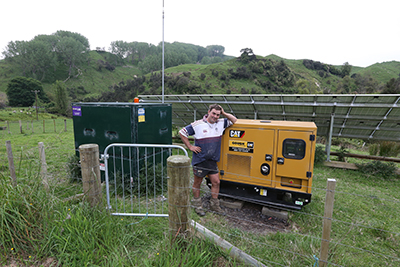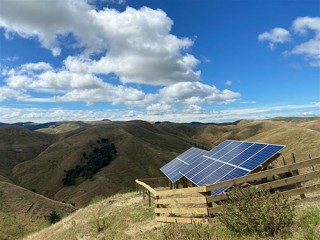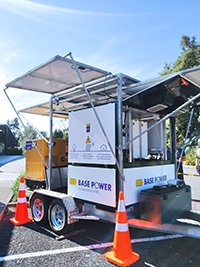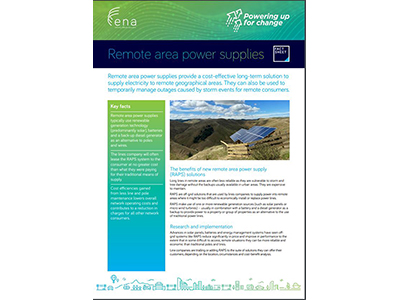Remote area power supplies
4 July 2022
Remote area power supplies provide a cost-effective long-term solution to supply electricity to remote geographical areas. They can also be used to temporarily manage outages caused by storm events for remote consumers
Key facts
- Remote area power supplies typically use renewable generation technology (predominantly solar), batteries and a back-up diesel generator as an alternative to poles and wires.
- The lines company will often lease the RAPS system to the consumer at no greater cost than what they were paying for their traditional means of supply.
- Cost efficiencies gained from less line and pole maintenance lowers overall network operating costs and contributes to a reduction in charges for all other network consumers.
The benefits of new remote area power supply (RAPS) solutions
Long lines in remote areas are often less reliable as they are vulnerable to storm and tree damage without the backups usually available in urban areas. They are expensive to maintain.
RAPS are off-grid solutions that are used by lines companies to supply power into remote areas where it might be too difficult to economically install or replace power lines.
RAPS make use of one or more renewable generation sources (such as solar panels or micro wind turbines) – usually in combination with a battery and a diesel generator as a backup to provide power to a property or group of properties as an alternative to the use of traditional power lines.
Research and implementation
Advances in solar panels, batteries and energy management systems have seen off-grid systems like RAPS reduce significantly in price and improve in performance to the extent that in some difficult to access, remote situations they can be more reliable and economic than traditional poles and lines.
Line companies are trialing or adding RAPS to the suite of solutions they can offer their customers, depending on the location, circumstances and cost-benefit analysis.
Remote area power supplies in action
North Island lines company Powerco has been working with RAPS solutions for over 10 years and has implemented 25 RAPS units on remote areas of its network and also as a rapid portable energy unit for power outages.
Rural Mangaweka: a case study

Power cuts are a thing of the past for central North Island farmer Cameron Bunn.
When the power goes out for others, they’re quick to ask Cameron if he’s got electricity. “I say, ‘yep, my power never turns off’.
The Bunns have a RAPS system supplied by Powerco subsidiary Base Power, which means the power stays on at their 650-hectare Mangaweka sheep and beef farm – no matter the weather.
It was a severe snowstorm in 2017 that saw Cameron, Elisabeth and their two young children switch from traditional electricity lines supply to two Base Power units.
“With no power, we don’t have any water because it’s all pumped water. Also, there are no electric fences and no way of keeping the animals behind the fence.
“It’s been really good since we’ve had Base Power – really positive. The units power my wool shed, my house, our rental home down the road, our reticulated water pump for our farm, and our other wool shed.”
With the RAPS solution, the Bunns pay a ‘lines’ fee to their electricity distribution company, the same as they would if they still had overhead power lines, plus diesel to top up the generator.
Watch the video
Useful links:
- Basepower
- Powernet - Rowallan Microgrid




